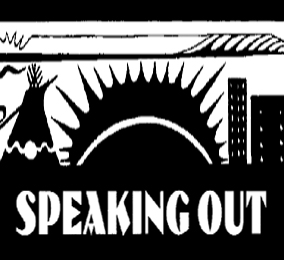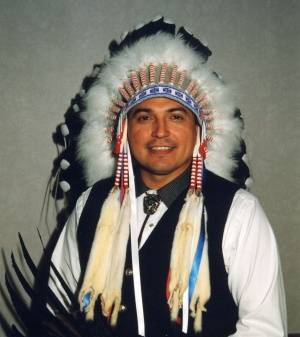by Ennis Morris and ANNews staff writers
(ANNews) – It might seem to be a disorganized mess but just because the road isn’t clear doesn’t mean it’s impassable. That’s the way it appears to be when it comes to the process of achieving reconciliation, honouring six years of often difficult work, fulfilling the Truth and Reconciliation Commission’s (TRC) recommendations and finding answers and direction when it comes to missing and murdered Aboriginal women and girls.
It’s been two years since the TRC’s Final Report was delivered and though there doesn’t seem to be a meaningful Guide to Future Reconciliation anywhere in sight, and the National Inquiry on Missing and Murdered Indigenous Women seems to be floundering, there has been some progress – just not where one might have expected it. Reconciliation is happening but much of it is being generated at a grass roots level, through social media, through programs initiated by organizations such as the Canadian Native Friendship Centres, Indigenous seniors’ organizations, sports groups, schools and cultural community centres. It is a slowly spreading conversation that does have its setbacks – like when the ignorant, uneducated and insecure espouse their hatred on social media and other platforms – but sometimes these negatives help to turn the tide toward reconciliation, especially when the listener has the knowledge and the tools to set the record straight.
Reconciliation is a distant reality and will remain that way until school books offer the truth, school children are encouraged to love and accept rather than ignore and distrust, adults are reeducated and enlightened and governments step up and do more than talk about what their plans are. When Steven Harper held the reins of power in Ottawa everyone knew that progress would halt; during his decade as Canada’s leader he and his “new” Conservatives did little to enhance Indigenous lifestyle and even less when it came to providing housing, running water, sewage systems, education, medical care and employment opportunities. During Canada’s 150-year history, Conservatives have been staunch non-supporters of Indigenous peoples, treaties and rights. In Alberta the mantra of both the Federal and Provincial Conservatives was to divide and conquer.
Progress is being made in Alberta where the NDP government has stepped up to the plate to participate and to act as a support mechanism rather than a road block. They’ve invested money, resources and manpower and have made various commitments over the last couple of years that have all come to fruition. Yes, they have more to accomplish but they are moving forward.
The Truth and Reconciliation Commission (TRC) was established as a result of the 2007 Indian Residential Schools Settlement Agreement. Its mandate was to tell Canadians about the 150-plus year history of the schools in part through the statements of those whose lives were affected by them. On June 2, 2015 the TRC reached the end of a six-year journey that saw several Commissioners, including those who brought the task to fruition, Honourable Chief Justice Murray Sinclair, Chief Willie Littlechild and Dr. Marie Wilson, listen to and record the statements of more than 6,750 victims and survivors of Indian Residential School abuse.
In its Final Report, ‘Honouring the Truth: Reconciling for the Future,’ a six-volume, two million word document translated into six different languages, the Commissioners left little doubt about the legacy of abuse and cultural genocide perpetrated against Canada’s Indigenous peoples by successive government bureaucracies whose Aboriginal policies were designed to eliminate Aboriginal governments; ignore Aboriginal rights; terminate the Treaties; and, through a process of assimilation, cause Aboriginal peoples to cease to exist as distinct legal, social, cultural, religious, and racial entities in Canada. In other words, the Commission determined that the Government of Canada and the host of church groups administering to children sent to residential schools participated in nothing less than nearly two centuries of cultural genocide.
To recognize that truth and to set a path that would encourage understanding and bring about reconciliation the Commission delivered 94 recommendations, which became known as the TRC’s Calls to Action (CTAs).
Last month, Carolyn Bennett, Minister of Crown-Indigenous Relations and Northern Affairs Canada introduced Treaty Six Grand Chief Wilton Littlechild as the head of a new Interim Board of Directors for the National Council of Reconciliation. He was appointed along with five other board members including Max FineDay, Mike DeGagné, Clint Davis, Edith Cloutier, and Jean Teillet.
These appointments are aimed at advancing Canada’s commitment to implementing the CTAs – specifically the call for the establishment of a National Council for Reconciliation, and multi-year funding for the National Council and the endowment of a National Reconciliation Trust.
Over the course of the next six months, the Board members will engage with various stakeholders to recommend options for the establishment of the National Council for Reconciliation and the endowment of a National Reconciliation Trust.
“Noting the importance and positive impact of follow up on the TRC’s calls to action, I am very encouraged by this government’s move to establish an interim committee to work on the Council for Reconciliation,” stated Grand Chief Littlechild. “A tremendous amount has been done to promote Reconciliation across Canada since our report. However, there is no coordinating or monitoring mechanism. I look forward with interest to the establishment of a Council who will be influential in the increased engagement of the rest of Canada. True reconciliation requires all of us working together.”
While introducing the new board, the government is claiming that “to date, progress has been made on over two-thirds of the Calls to Action under federal or shared responsibility.”
Therein lies the question – What has been done and where is it being done? Saying you are on top of it is one thing, being transparent and accountable is another. The pace will never quicken if the public is kept in the dark about what is being done and what has actually been achieved.
Minister Bennett stated, “Reconciliation is not just an Indigenous issue, it’s a Canadian one, and it will take genuine collaboration at all levels to advance this journey. I look forward to receiving concrete recommendations that will further the Government’s commitment to advancing reconciliation for the benefit of all Canadians.”
Implementing the Truth and Reconciliation Calls to Action is an important milestone in Canada’s journey of reconciliation. We are indeed hopeful that the work of this Interim Board of Directors will form a vital guidepost along that journey.




Be the first to comment on "Are we on the road to reconciliation?"